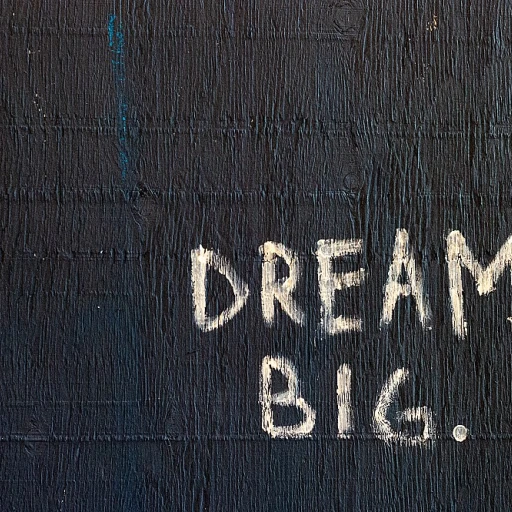
Understanding Background Checks
The Fundamentals of Background Checks
Background checks are a critical component in the hiring process, serving as a tool for employers to verify a candidate's qualifications and character. These checks encompass various types of screenings, including criminal records, social media activity, and employment verification. Understanding what a background check includes can demystify this common procedure for job seekers. Employers often utilize background screening to ensure that the information provided by candidates aligns with public records and historical data. This process can verify employment history, confirm job titles, and validate dates of employment. The goal is to create a safer and more secure workplace environment by identifying any discrepancies or potential risks associated with a candidate's employment background. Aside from employment history, background checks may include criminal records checks, credit reporting, and other aspects that can influence hiring decisions. These comprehensive investigations help employers make informed decisions, mitigating risks and ensuring the suitability of the candidate for the job. To get a better understanding of an employer's rights and obligations during this period, it's essential to familiarize yourself with the Fair Credit Reporting Act (FCRA), which sets the legal framework for these checks. Moreover, knowing about "at will" employment and its implications on hiring can be pivotal. Interested readers can explore further on understanding "at will" employment in Illinois, which might provide additional insights into the rules governing employment relationships.Employment History in Background Checks
Unveiling the Role of Employment History
When carrying out a background check, one of the pivotal factors assessed is the employment history of the candidate. Employers engage in this exercise not just to verify a candidate's previous job titles and dates of employment, but also to ensure the authenticity of the work history provided. Employers often employ third-party background screening services to conduct these checks. The employment background verification process involves checking public records and contacting former employers to confirm various aspects of a candidate’s past work experience. This step can help validate the reliability of the employment history records the candidate has submitted. The fairness and accuracy of these background checks are governed by the Fair Credit Reporting Act (FCRA). It ensures that the information pertaining to every former job and employer is reported accurately, safeguarding candidates from erroneous hiring decisions based on inaccuracies. While background checks can bring to light gaps in employment or inconsistencies in job titles and durations, they can also be instrumental in revealing more comprehensive employment patterns. This background screening is crucial for employers making informed hiring decisions. To grasp the broader implications, such as how at-will employment laws may intersect with background checks, it can be helpful to explore more resources, like understanding employment at will in Washington State (https://www.compensation-and-benefits.com/blog/understanding-employment-at-will-in-washington-state). Ultimately, verifying employment history through background checks lays the groundwork for a transparent hiring process, aiding employers in selecting the most suitable candidates while ensuring compliance with legal standards.Implications for Compensation and Benefits
Influence on Pay and Benefits Decisions
When it comes to compensation and benefits, understanding how an employment history retrieved from a background check impacts employers' decisions is crucial. Employers often rely on employment verification during the hiring process to assess whether a candidate's job titles and work history align with the role they are hiring for. For instance, if a background check reveals discrepancies in the dates of employment or job titles, it may lead to questions about the candidate's honesty and credibility. Such findings might influence the compensation package offered, as employers weigh the risk factors involved. Additionally, the employment history can shed light on a candidate's career trajectory, stability, and progress. Employers often view a solid, consistent work record as indicative of reliability and commitment, translating into more attractive compensation offers. Understanding the implications of employment history checks can also help candidates better prepare for discussions around salary and benefits. By being aware of potential red flags and correcting any inaccuracies preemptively, candidates can focus more on negotiating favorable terms during their hiring interviews. To explore deeper into how employment history can influence hiring decisions and compensation offers, explore this detailed resource on understanding domestic partnerships in Illinois. This context can provide insight into broader implications for candidates navigating the complex dynamics of compensation and benefits packages.Common Misconceptions
Dispelling Myths Around Background Checks
When it comes to background checks, there are several misconceptions that can cloud a candidate's understanding of what these checks entail and how they impact employment. Let's address some of these common myths to provide clarity.
One prevalent misconception is that background checks will always reveal every detail of a candidate's past employment history. While these checks are thorough, they primarily focus on verifying job titles, dates of employment, and sometimes reasons for leaving. Employers typically use third-party services for employment verification, which rely on public records and information provided by previous employers.
Another myth is that background checks include a candidate's credit history. While credit reporting can be part of the screening process, it is not always included unless the job requires financial responsibility. The Fair Credit Reporting Act (FCRA) regulates how credit information can be used, ensuring that candidates are aware and have consented to this part of the background screening.
Some candidates fear that a background check will automatically disqualify them if they have a criminal history. However, many employers consider the nature of the criminal records, the time elapsed since the offense, and its relevance to the job. It's important for candidates to understand that not all criminal records will impact hiring decisions.
Lastly, there's a belief that social media profiles are extensively scrutinized during background checks. While some employers may review public social media activity, it is not a standard part of the employment background check process. Employers are more focused on verifying the professional aspects of a candidate's history.
Understanding these nuances can help candidates better prepare for the hiring process and alleviate unnecessary concerns about background checks.
Legal Considerations
Legal Framework and Compliance
When it comes to background checks, understanding the legal landscape is crucial for both employers and candidates. The Fair Credit Reporting Act (FCRA) plays a significant role in regulating how background checks are conducted, particularly when it involves third-party agencies. This law ensures that the process is fair and transparent, providing candidates with the right to be informed if their employment history or other records are being checked.
Employers must comply with the FCRA by obtaining written consent from candidates before conducting a background screening. This includes checks on employment history, criminal records, and credit reporting. If an employer decides not to hire a candidate based on the information found, they are required to provide a copy of the report and a summary of rights under the FCRA.
State-Specific Regulations
In addition to federal laws, state regulations can also impact the background check process. Some states have "ban the box" laws that restrict when employers can inquire about criminal history during the hiring process. These laws aim to reduce discrimination and provide candidates with a fair chance to present their qualifications before their criminal history is considered.
Employers should be aware of these state-specific regulations to avoid legal pitfalls. For instance, certain states may have restrictions on how far back an employment background check can go or what types of records can be considered. Staying informed about these regulations will help employers make compliant hiring decisions.
Protecting Candidate Rights
For candidates, understanding your rights during the background check process is essential. You have the right to dispute inaccurate information found in your records. If you believe there is an error, you can contact the reporting agency to have it corrected. This is particularly important for employment verification and work history, where inaccuracies can impact your job prospects.
Moreover, candidates should be aware that social media checks are becoming more common in the hiring process. While employers may use public records and social media to assess candidates, they must do so in a manner that respects privacy and complies with legal standards.













